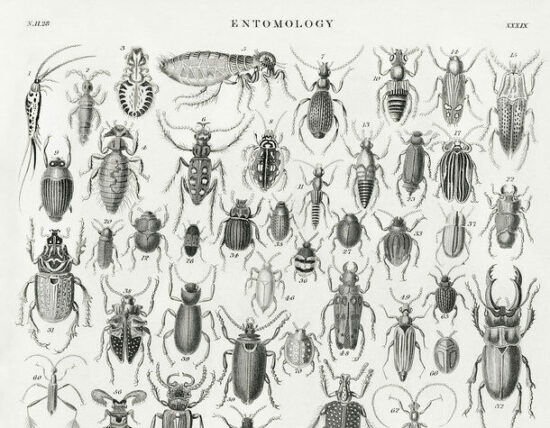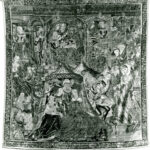Thomas Muffet, also known as Thomas Moffett, was a renowned English physician, naturalist, and entomologist of the late 16th and early 17th centuries. He was born on February 21, 1553, in Shoreditch, London, England. Muffet made significant contributions to the fields of medicine, natural history, and the study of insects, earning him a place among the pioneers of early entomology.
Thomas Muffet was the son of Thomas Muffet Sr., a wealthy silk merchant and mayor of Shoreditch. He received a quality education, attending the University of Cambridge in 1571, where he studied medicine and natural sciences. Muffet’s interest in natural history and insects flourished during his time at the university, leading him to become a prominent figure in the field later in life.
After completing his studies, Muffet began his medical career, focusing primarily on pediatric medicine. He became renowned for his expertise in treating children’s ailments and gained a reputation as an excellent physician. Muffet’s dedication to improving the health of children was reflected in his groundbreaking work, “Health’s Improvement: or, Rules Comprising and Discovering the Nature, Method, and Manner of Preparing all Sorts of Food Used in this Nation.”
Published in 1584, this influential book revolutionized dietary practices for infants and young children. Muffet emphasized the importance of a balanced diet and introduced new recipes specifically designed to promote good health in children. His work helped to establish the foundation for modern pediatric nutrition.
Thomas Muffet’s true passion lay in the study of insects, and he made significant contributions to the field of entomology. His fascination with these small creatures led him to compile one of the most comprehensive early works on insects, titled “Insectorum sive minimorum Animalium Theatrum,” which translates to “Theatre of Insects” [1]. This monumental work was published posthumously in 1634 by his son, Samuel Muffet.
“Insectorum Theatrum” is an extensive catalog of various insect species, including detailed descriptions and illustrations. Muffet’s observations and classifications of insects laid the groundwork for future entomologists and greatly advanced the scientific understanding of these diverse creatures.
Muffet’s work also challenged many common misconceptions about insects prevalent during his time. He was a strong proponent of empiricism, advocating for the careful observation and study of insects rather than relying on folklore or superstition. His approach to scientific inquiry set a precedent for future naturalists and contributed to the development of the scientific method.
Despite his influential contributions to the fields of medicine and entomology, Thomas Muffet’s work was somewhat overshadowed by his contemporaries. However, his writings and observations had a lasting impact on subsequent generations of naturalists and entomologists.
One of Muffet’s most significant legacies was the influence he had on his famous son, Samuel Muffet, who went on to become a prominent physician and naturalist in his own right. Samuel expanded on his father’s work, particularly in the field of entomology, and is often credited with popularizing the study of insects in England.
Additionally, Thomas Muffet’s dedication to pediatric medicine and his emphasis on proper nutrition for children helped shape the development of modern pediatric care and nutritional science.
In conclusion, Thomas Muffet was an influential figure in the fields of medicine, natural history, and entomology. His pioneering work in pediatric medicine and his contributions to the study of insects laid the groundwork for future advancements in these areas. Despite being somewhat overshadowed by his contemporaries, Muffet’s impact on the scientific community is still recognized today.
Sources
Thomas Muffet (The Diary of Samuel Pepys) (pepysdiary.com)
Theatre of insects | Museum Wales
MUFFET, Thomas | British History Online (british-history.ac.uk)







